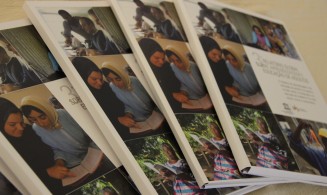Produced in 2009, the first Global Report on Adult Learning and Education (GRALE 1) was the most comprehensive overview to date of the global state of adult learning and education (ALE). Designed for policy-makers, practitioners and researchers, GRALE I provided a strong basis for negotiations at the Sixth International Conference on Adult Education (CONFINTEA VI). Many of its recommendations were taken up in the outcome document of CONFINTEA VI: the 2009 Belém Framework for Action.
GRALE brought together findings and highlighted good practices from five regional and 154 national reports. It described how the role of adult education had evolved since the first CONFINTEA in 1949. Initially seen as a tool to promote international understanding, ALE is now regarded as a key ingredient for economic, political and cultural transformation of individuals, communities and societies.
GRALE analysed major global trends, showing how ALE could help countries adapt to the rapid pace and complexity of economic, technological and cultural change. It examined how women and men needed to adapt and re-adapt throughout their lives. In the context of globalization, shifts in production and new technologies, adults would need to keep on acquiring more information, upgrading their skills and re-examining their values.
The UNESCO Institute for Lifelong Learning published further reports in 2013 (GRALE 2) and 2016 (GRALE 3).
Download
- Global Report on Adult Learning and Education (PDF, 1.8 MB)
- Global Report on Adult Learning and Education: Executive Summary
- Author/Editor: UNESCO Institute for Lifelong Learning
- Global Report on Adult Learning and Education
- UNESCO Institute for Lifelong Learning, 2009
- ISBN 978-92- 820-1169-0
- Available in: English, French, Spanish, Portuguese









